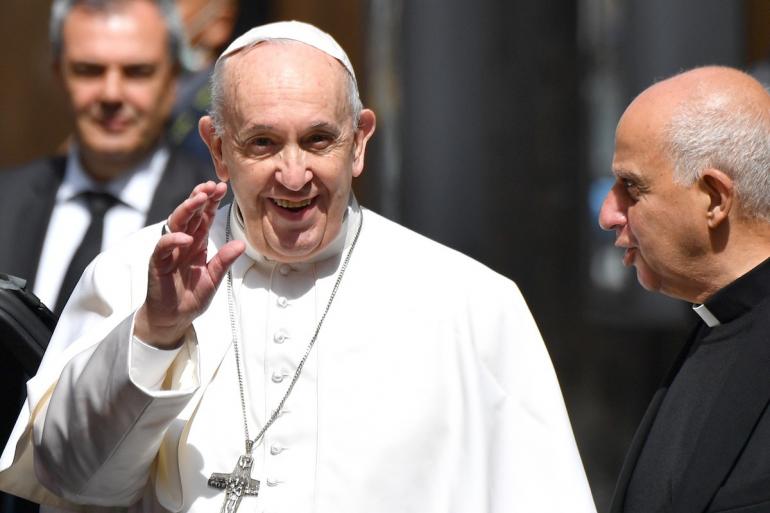Pope Francis urges Catholic media to give voice to those who need mercy, understanding

Pope Francis called on Catholic media around the world to go beyond professional competence and to dedicate themselves “completely to the welfare of others.”
In his message to this year’s Catholic Media Conference of the Catholic Press Association on June 30, the pontiff stressed the need for a Catholic media “in an age marked by conflicts and polarization from which the Catholic community itself is not immune.”
“We need media capable of building bridges, defending life and breaking down the walls, visible and invisible, that prevent sincere dialogue and truthful communication between individuals and communities,” he added.
He emphasized that media is necessary to “distinguish good from evil” in terms of producing sound judgments based on unbiased facts.
The pope also stressed that “a true communicator dedicates himself or herself completely to the welfare of the others, at every level, from the life of each individual to the life of the entire human family.”
He pointed out that one “cannot truly communicate unless we become personally involved, unless we can personally attest to the truth of the message we convey.”
Pope Francis noted that “because of the pandemic, all of us have come to appreciate” the message of St. Paul that people are “members of one another.”
“Indeed, the experience of these past months has shown how essential is the mission of the communications media for bringing people together, shortening distances, providing necessary information, and opening minds and hearts to truth,” said the pontiff.
“All communication has its ultimate source in the life of the triune God, who shares with us the richness of his divine life and calls us in turn to communicate that treasure to others by our unity in the service of his truth,” he said.
The pope also expressed hoped that in a world that “speaks with adjectives and adverbs,” Christian communicators utter “nouns that acknowledge and advance the quiet claims of truth and promote human dignity.”
“Where the world sees conflicts and divisions, may you look to the suffering and the poor, and give voice to the plea of our brothers and sisters in need of mercy and understanding,” he said.
He called on Catholic media to be “signs of unity” and to commit in the protection of communication “from all that would distort it or bend it to other purposes.”
“In the Church we have all been baptized in the one Spirit and made members of the one body,” said the pontiff in his message to the conference that carries the theme “Together While Apart.”
Pope Francis said the theme of the conference “eloquently expresses the sense of togetherness that emerged, paradoxically, from the experience of social distancing imposed by the pandemic.”
For the first time in the history of the more than 100-year-old organization, members met online on June 30.
The Catholic Press Association, which was established in Columbus, Ohio, in 1911, has been described as the “most active and vibrant group of Catholic communicators in the world.”
The organization, which was founded with the aim of “serving and uniting” its members, has currently 225 publication members and 600 individual members.
Pope Francis began his message to the conference by expressing his closeness “to those who have been affected by the virus and to those who, even at the risk of their lives, have worked and continue to work in assisting our brothers and sisters in need.” - LiCAS.news
Radio Veritas Asia (RVA), a media platform of the Catholic Church, aims to share Christ. RVA started in 1969 as a continental Catholic radio station to serve Asian countries in their respective local language, thus earning the tag “the Voice of Asian Christianity.” Responding to the emerging context, RVA embraced media platforms to connect with the global Asian audience via its 21 language websites and various social media platforms.














